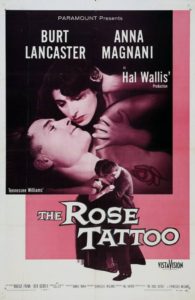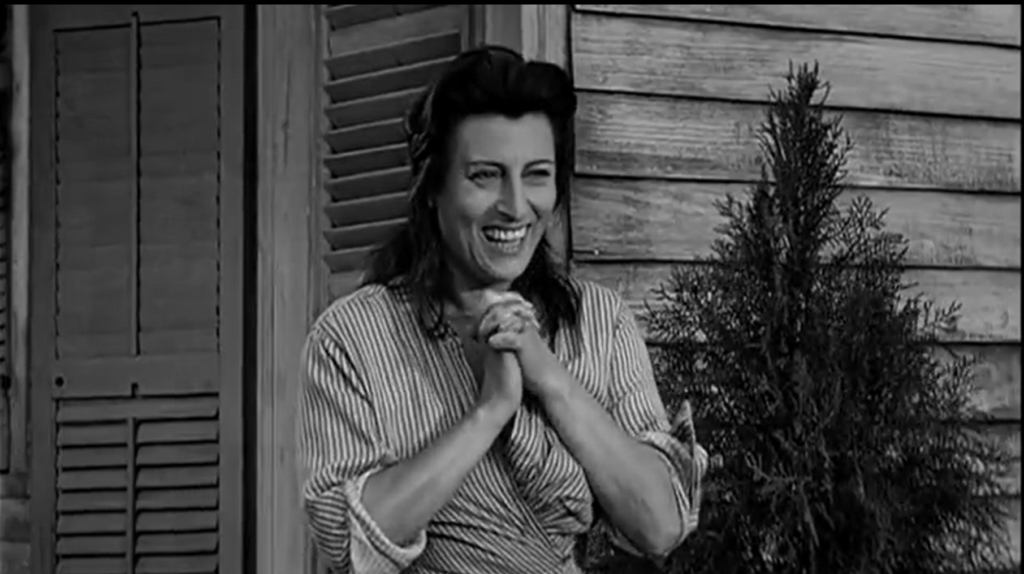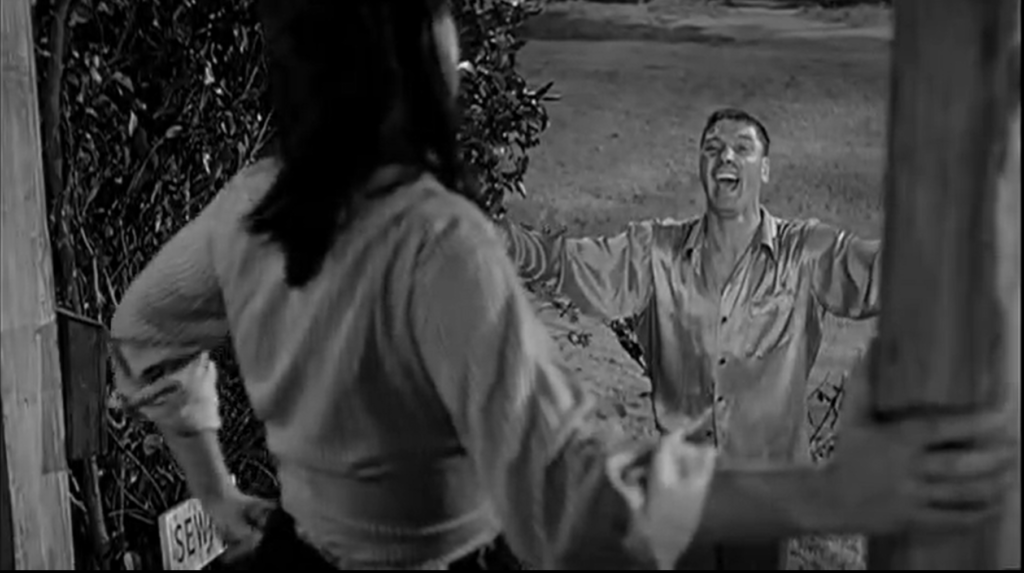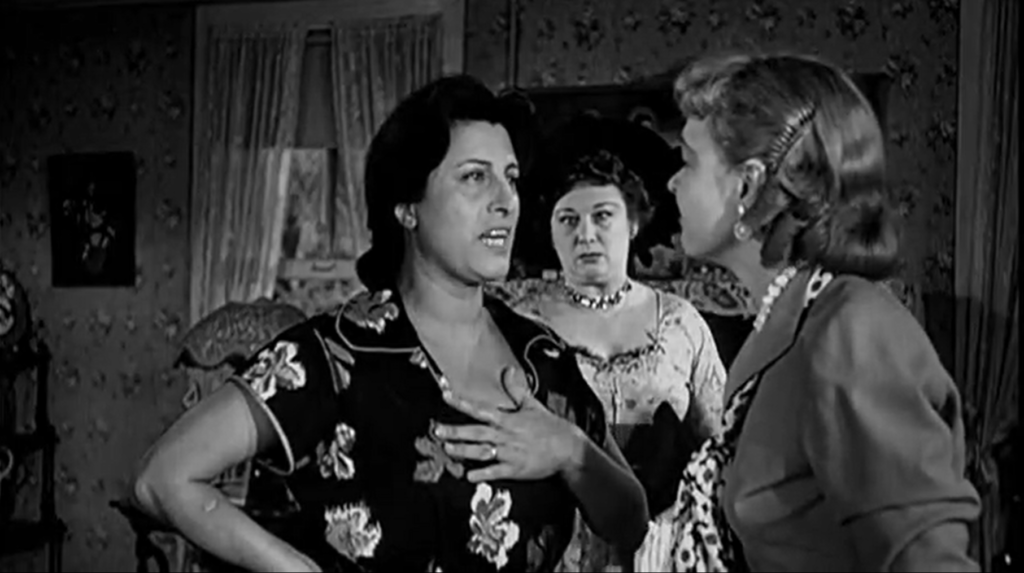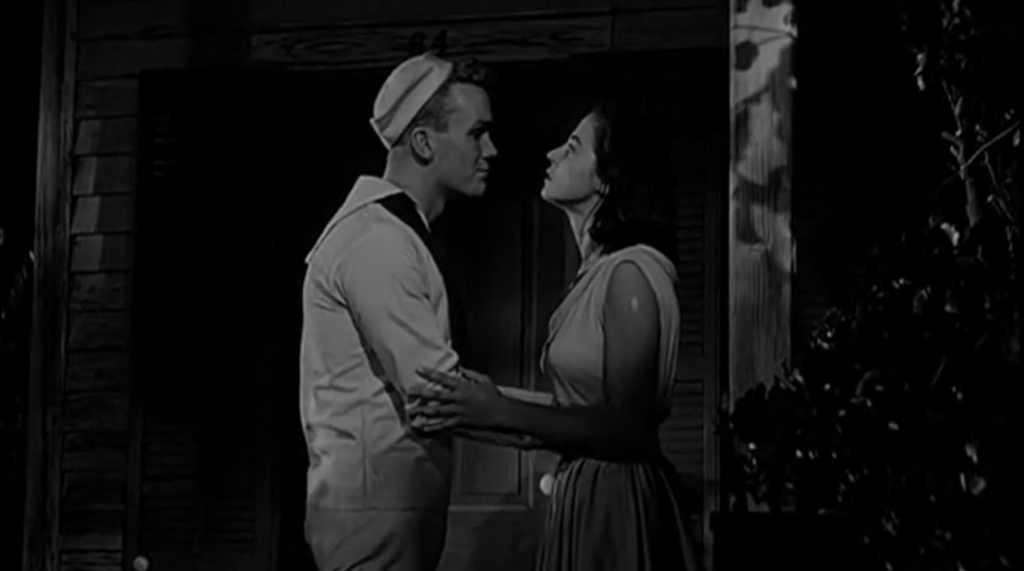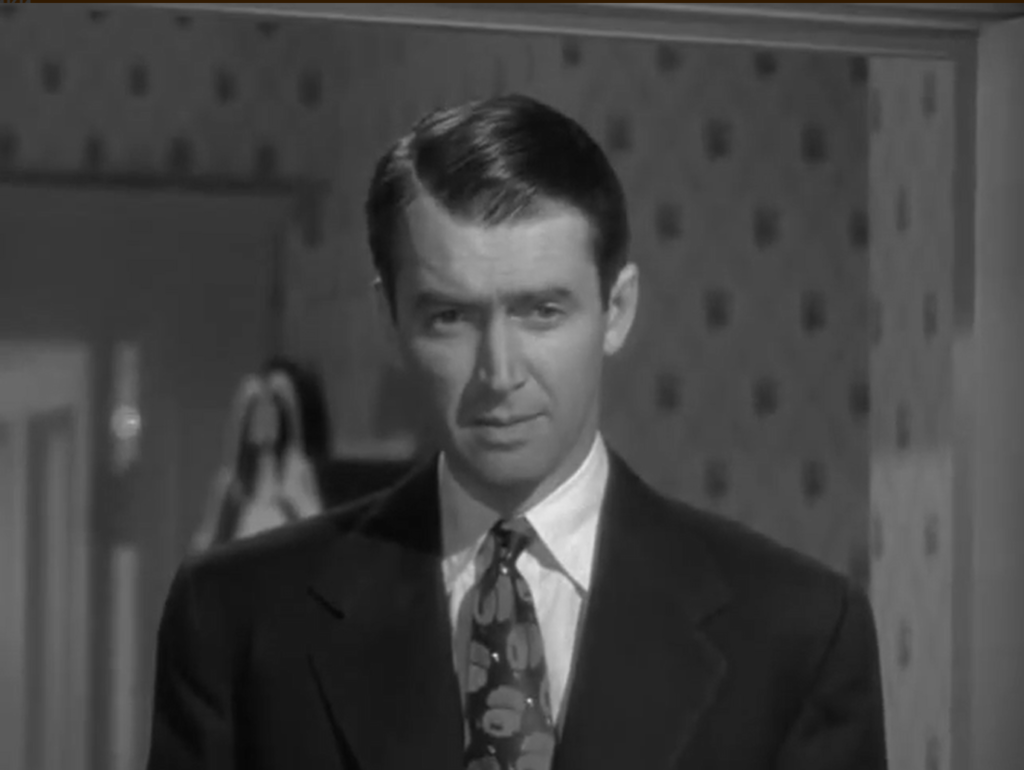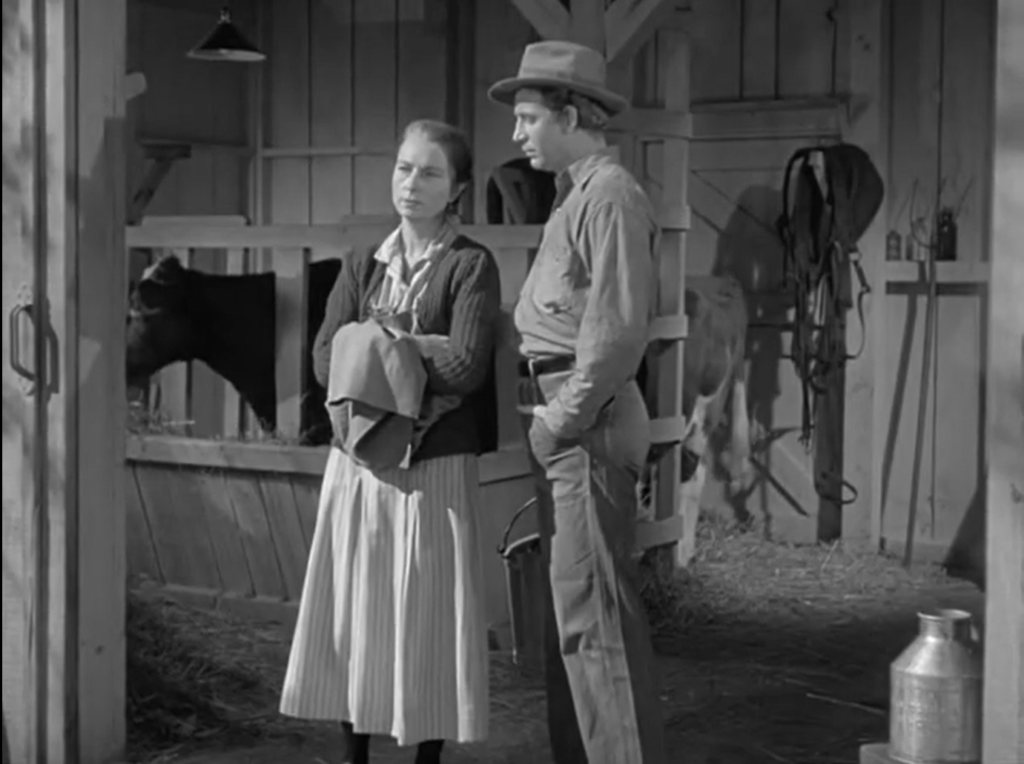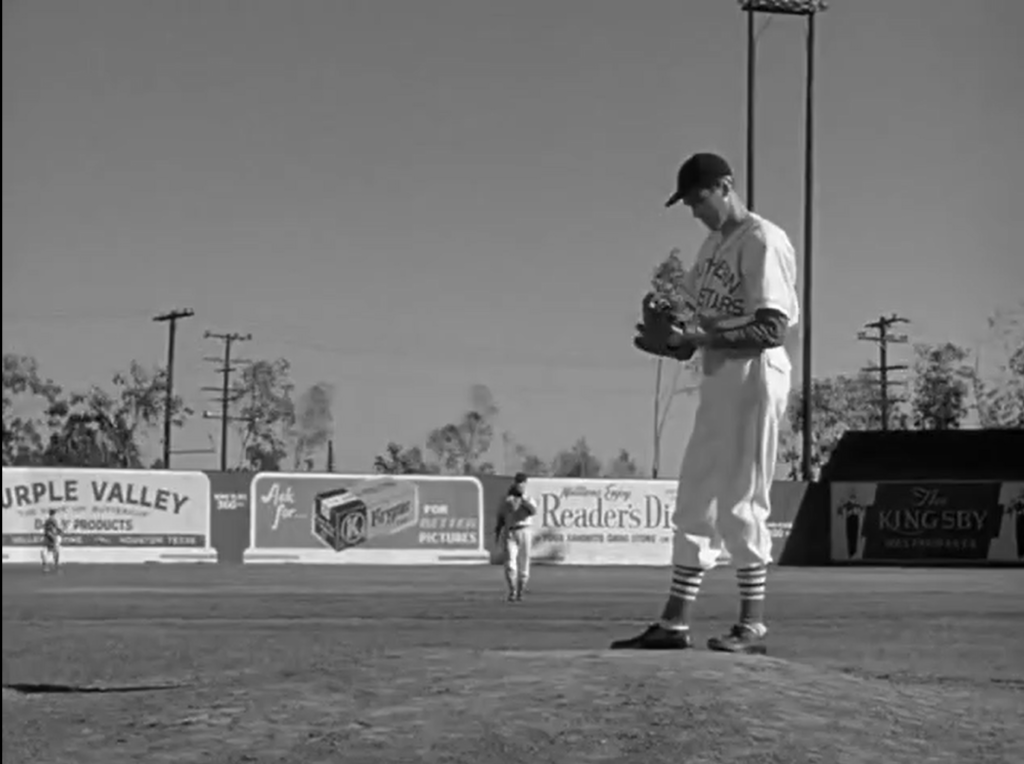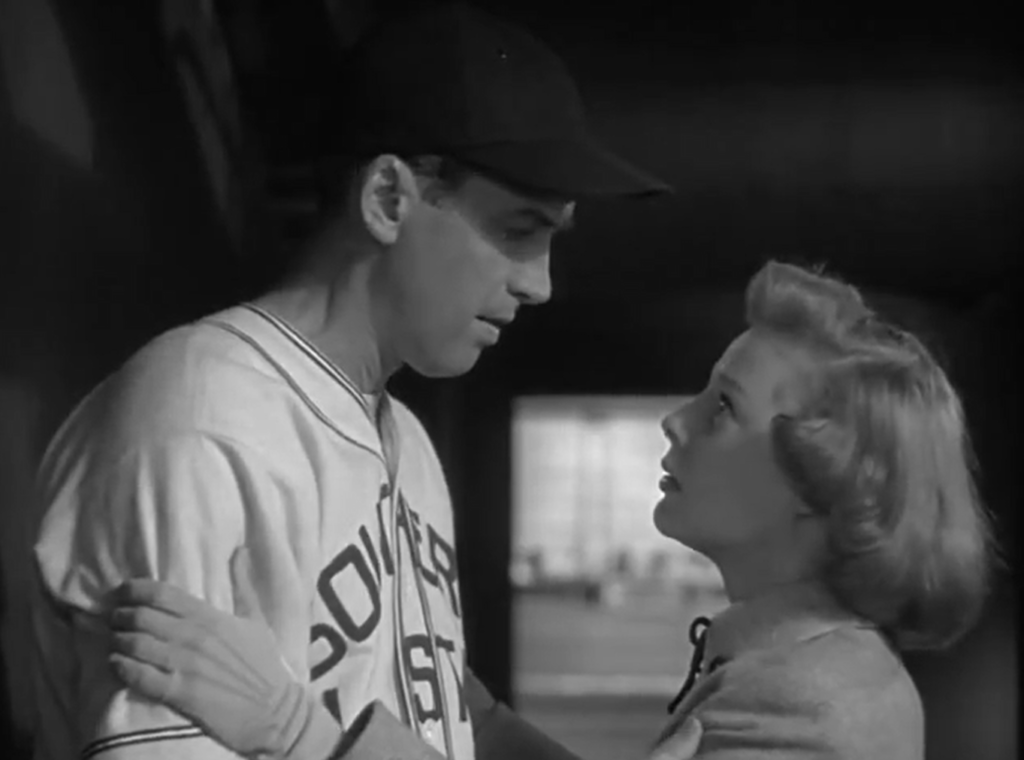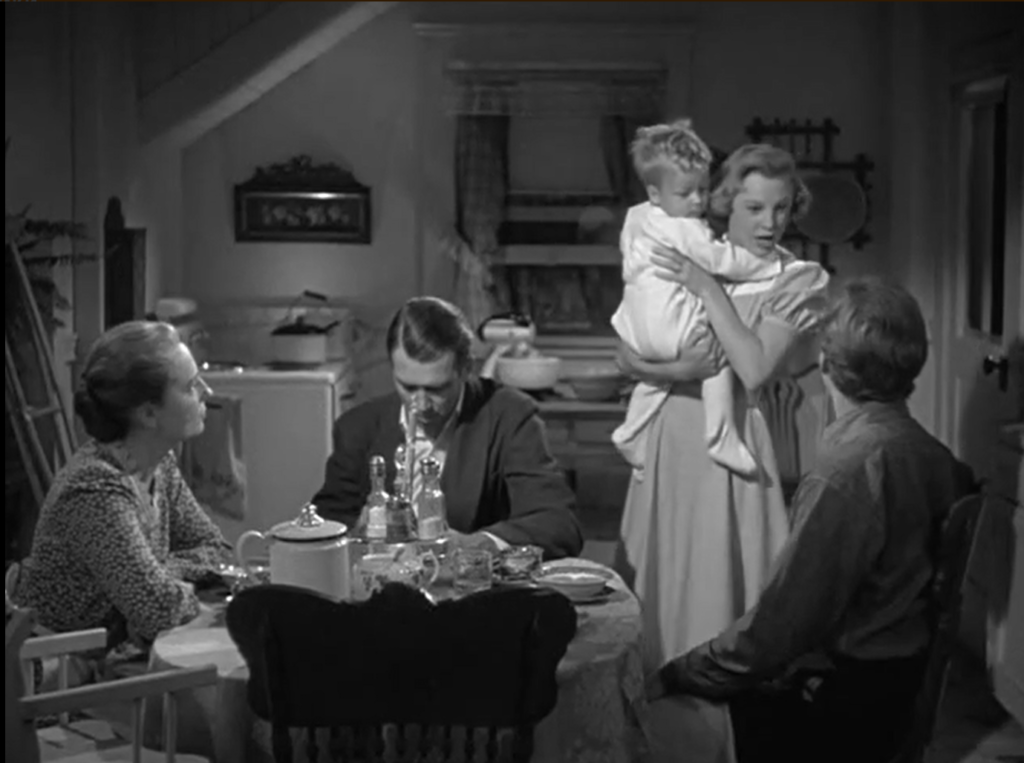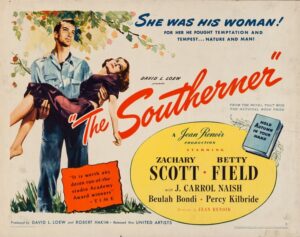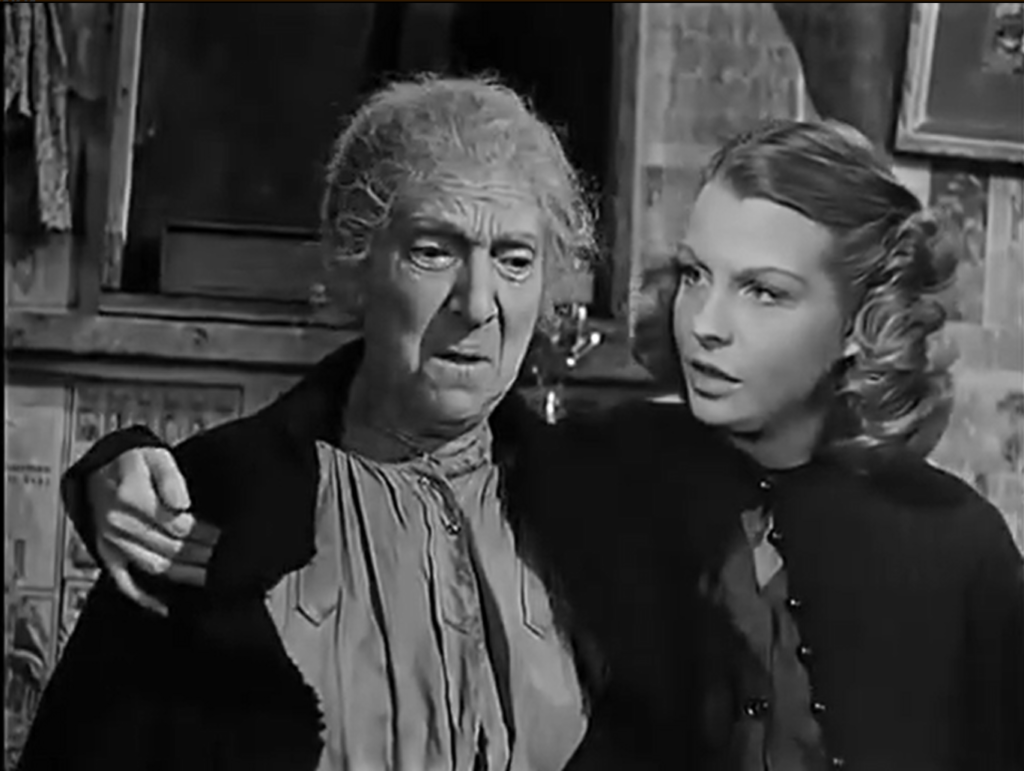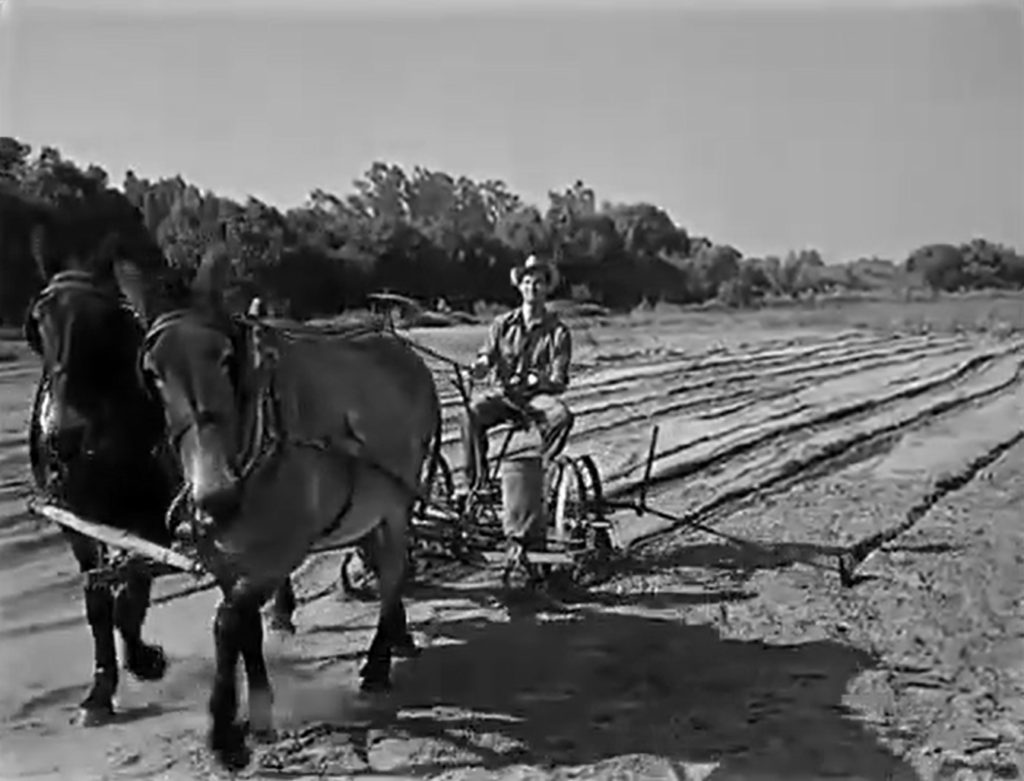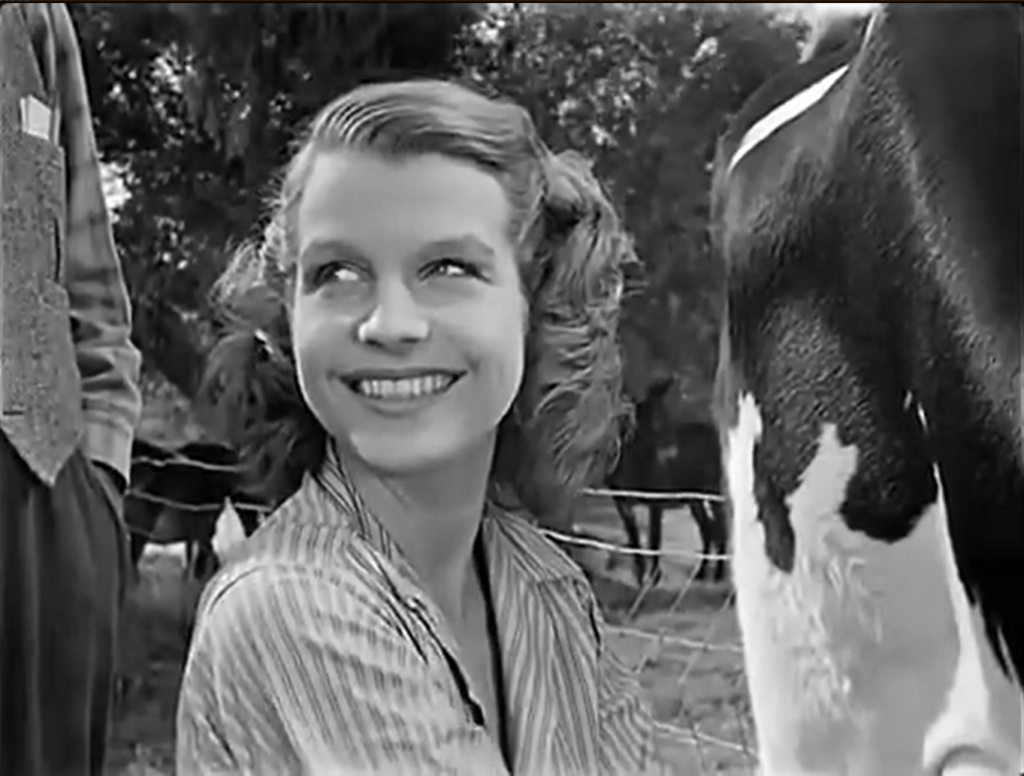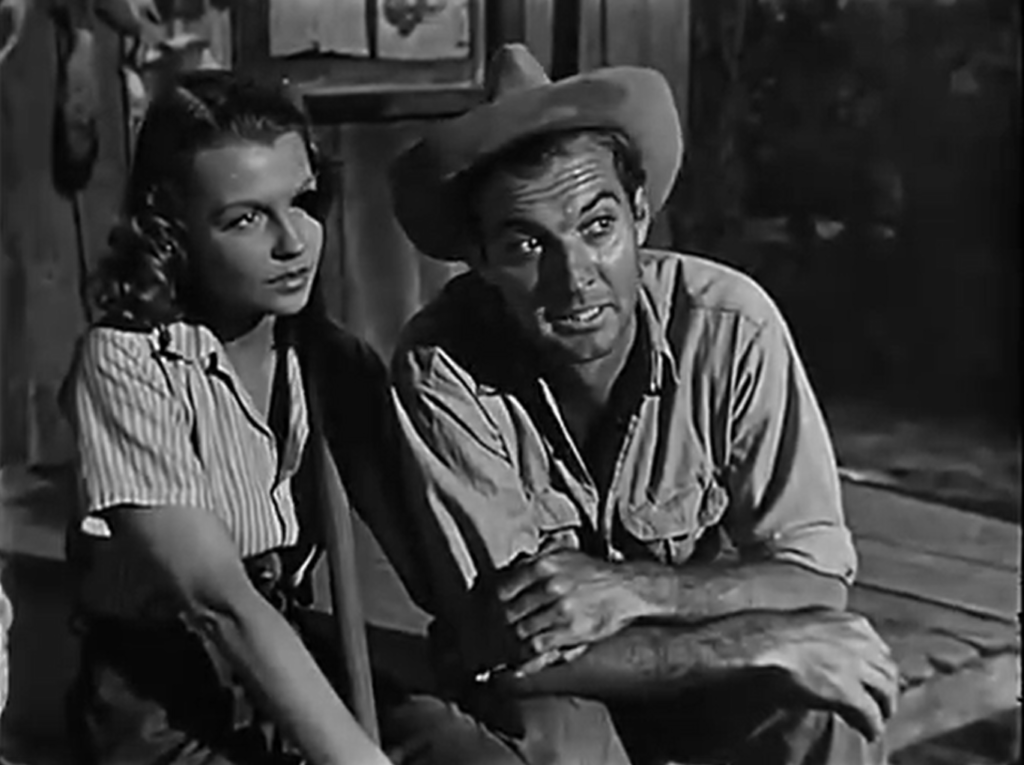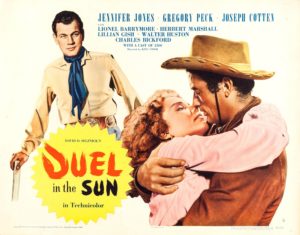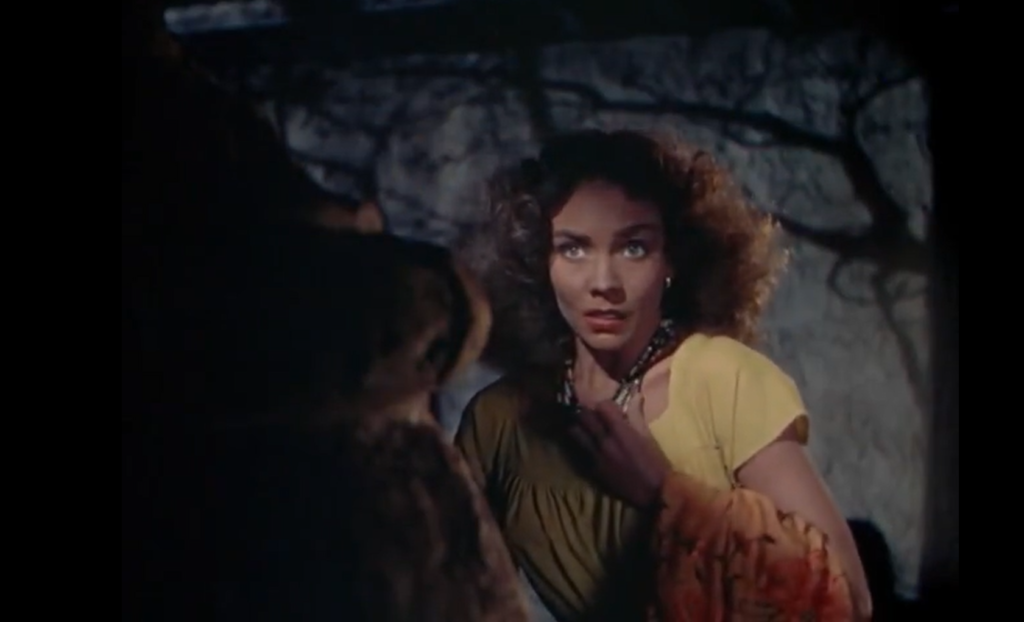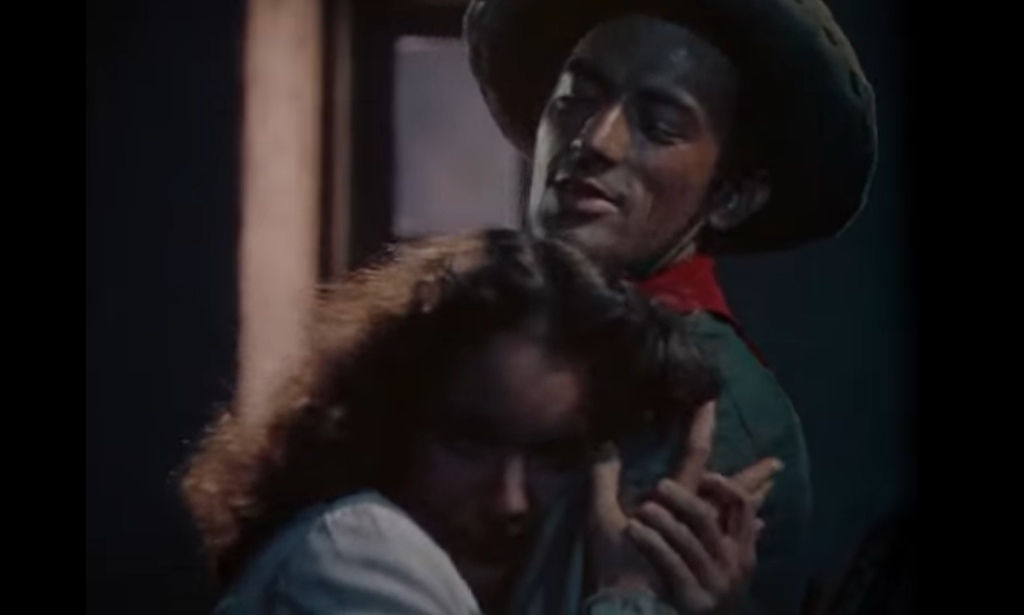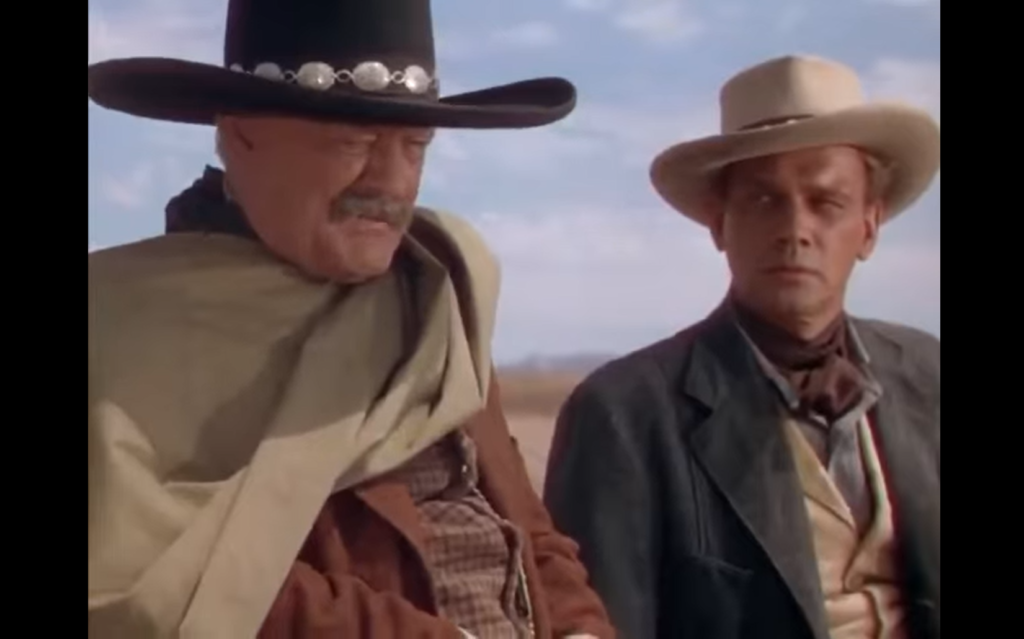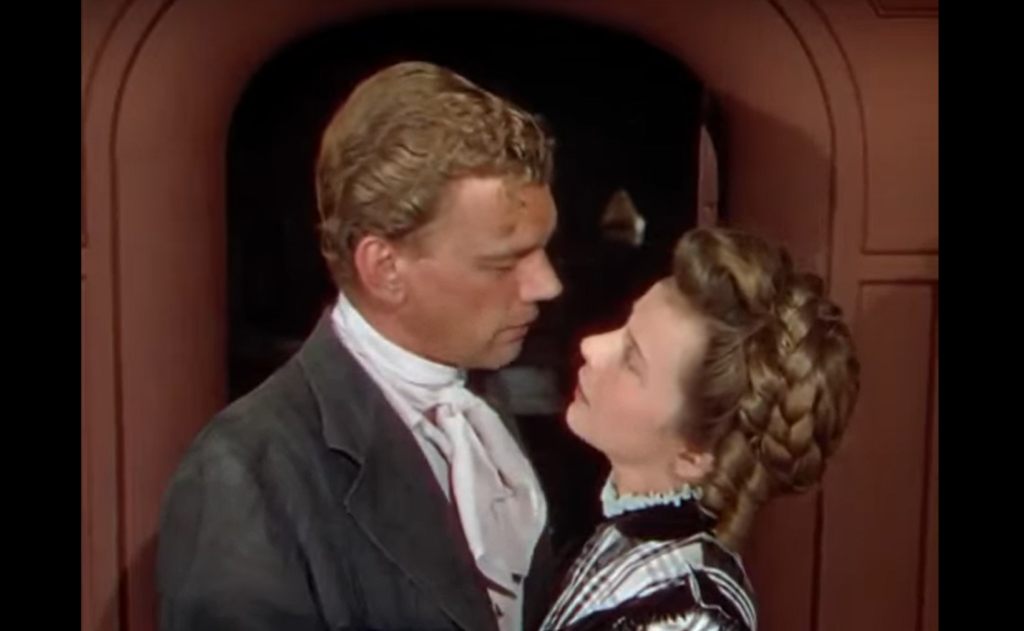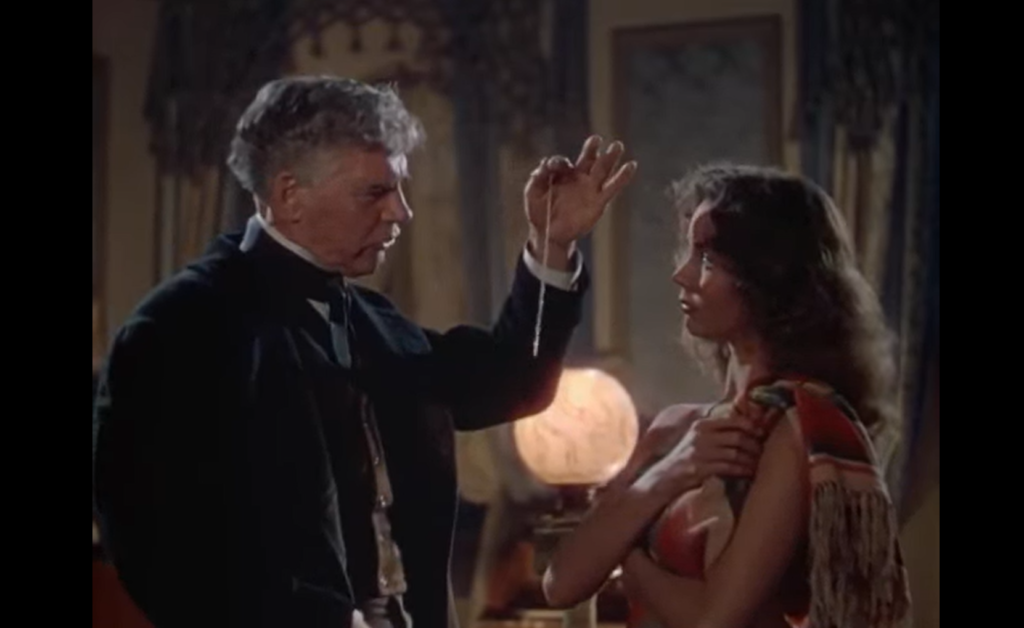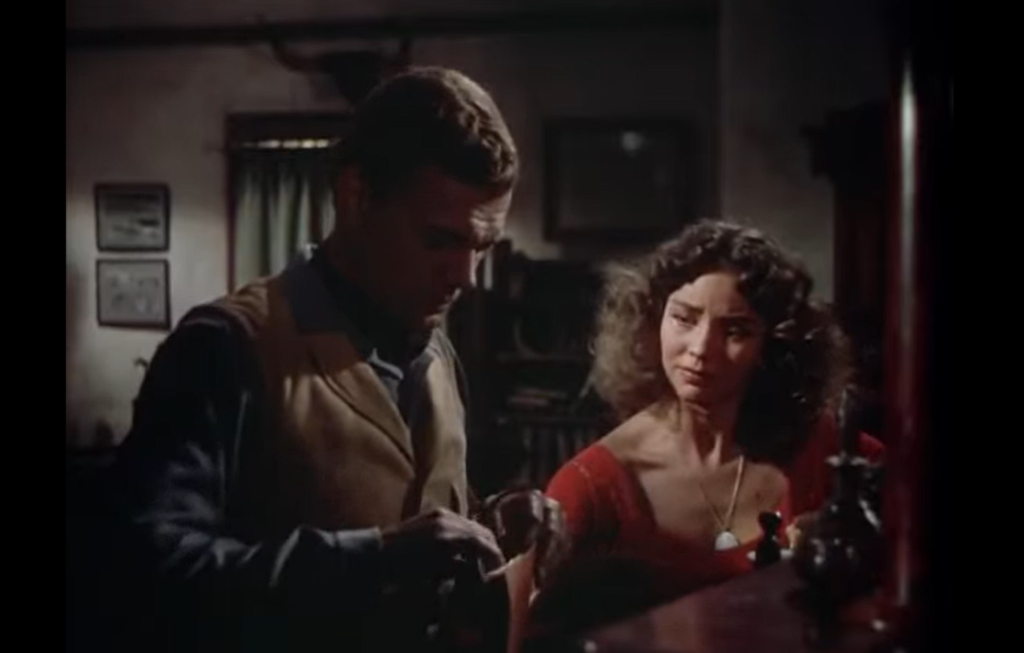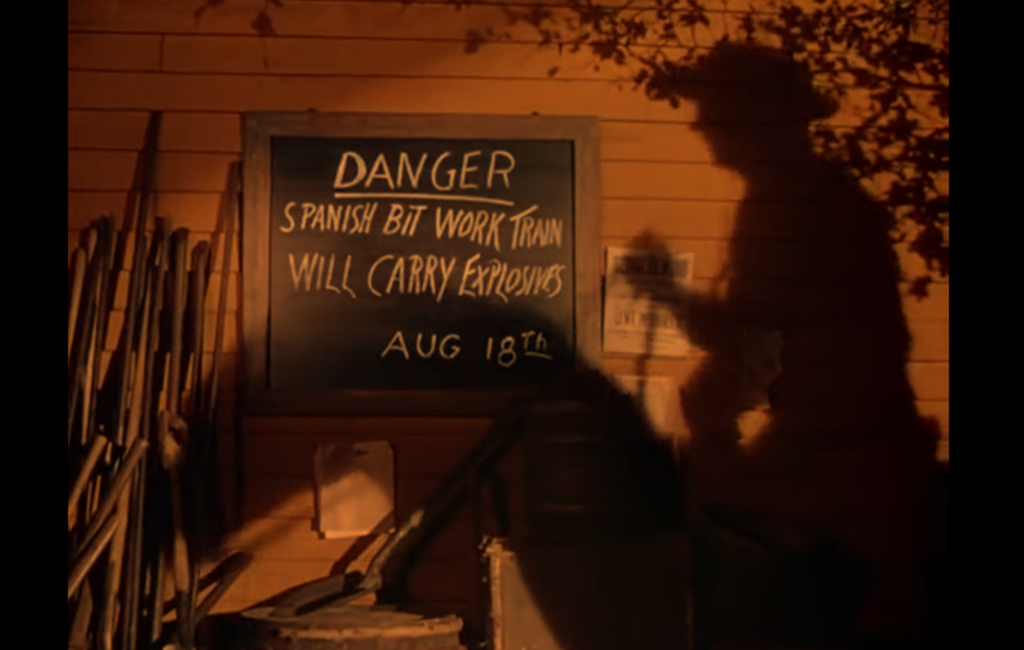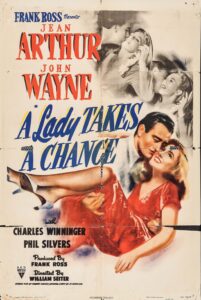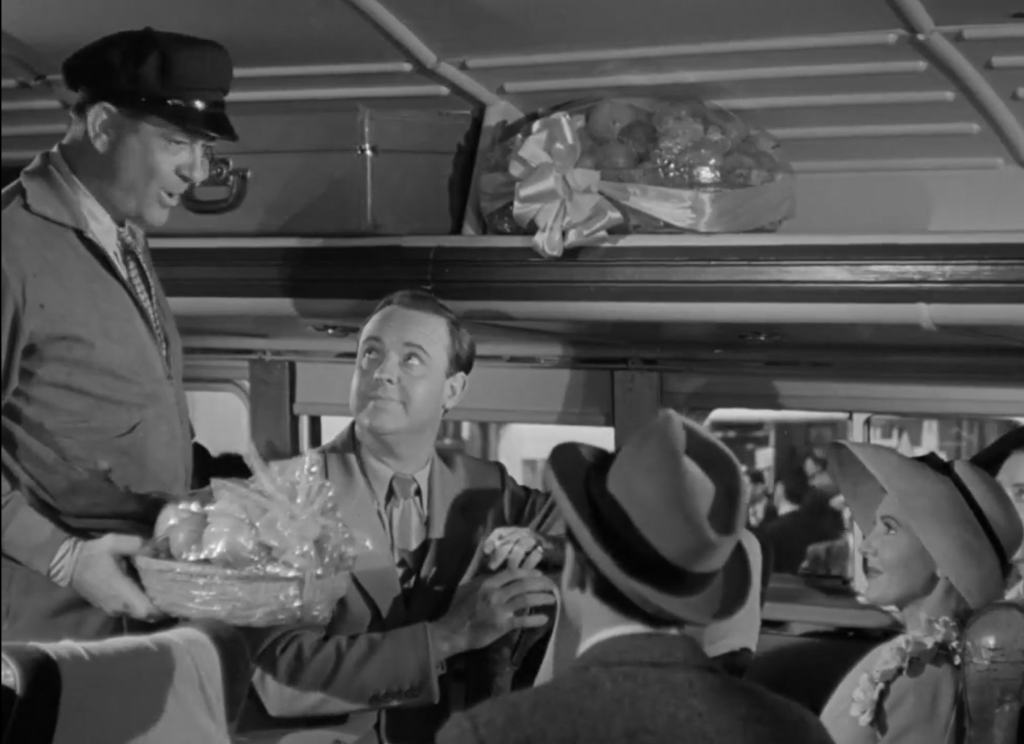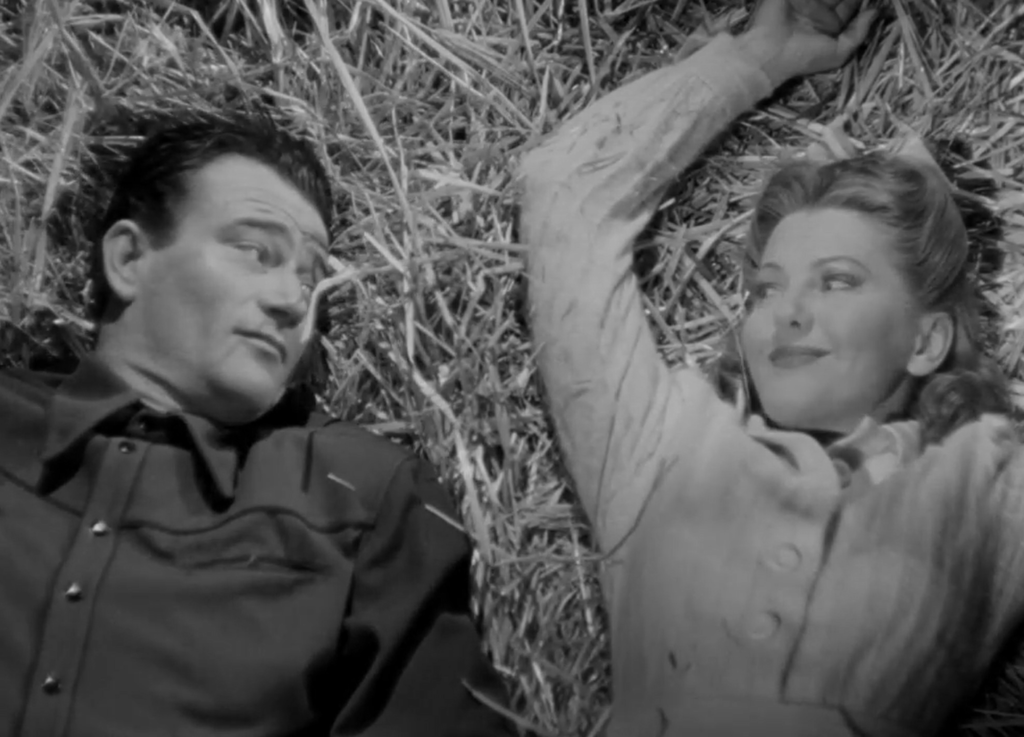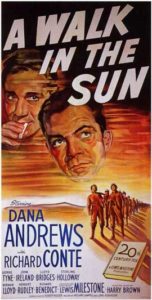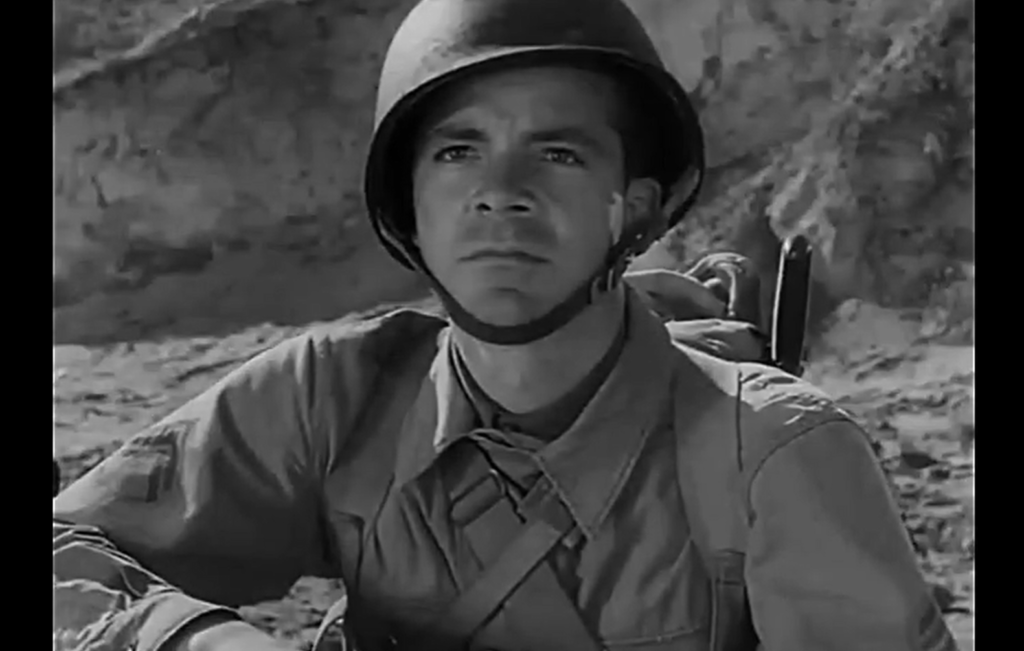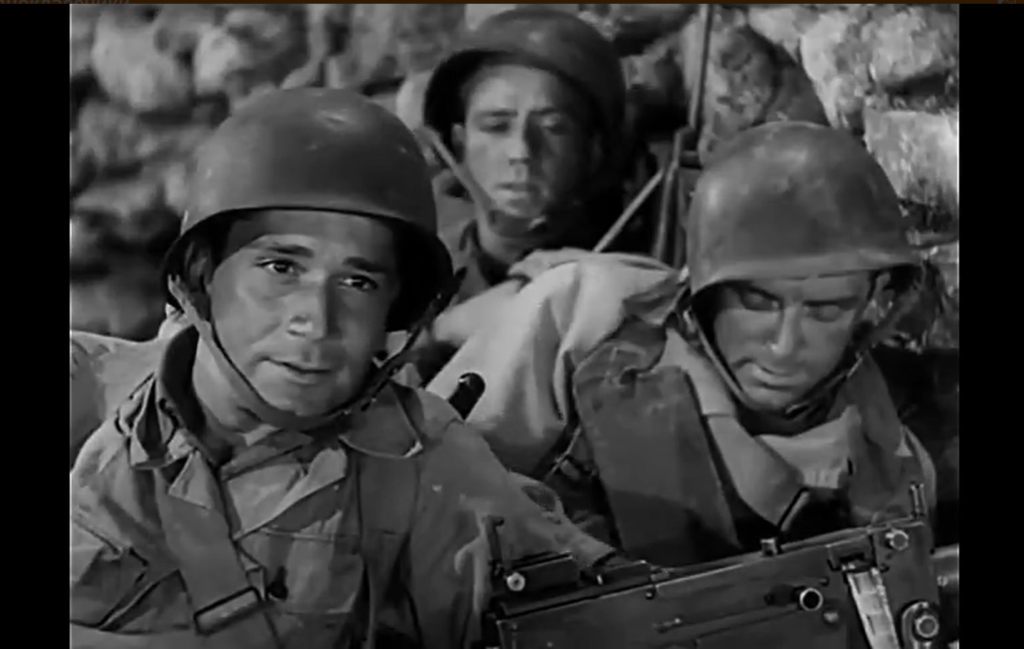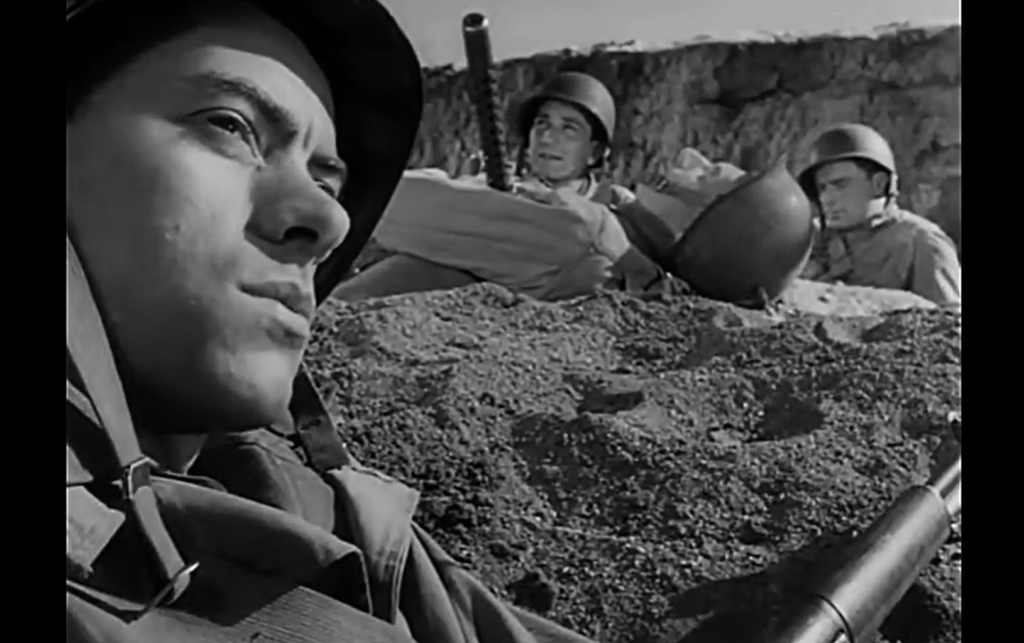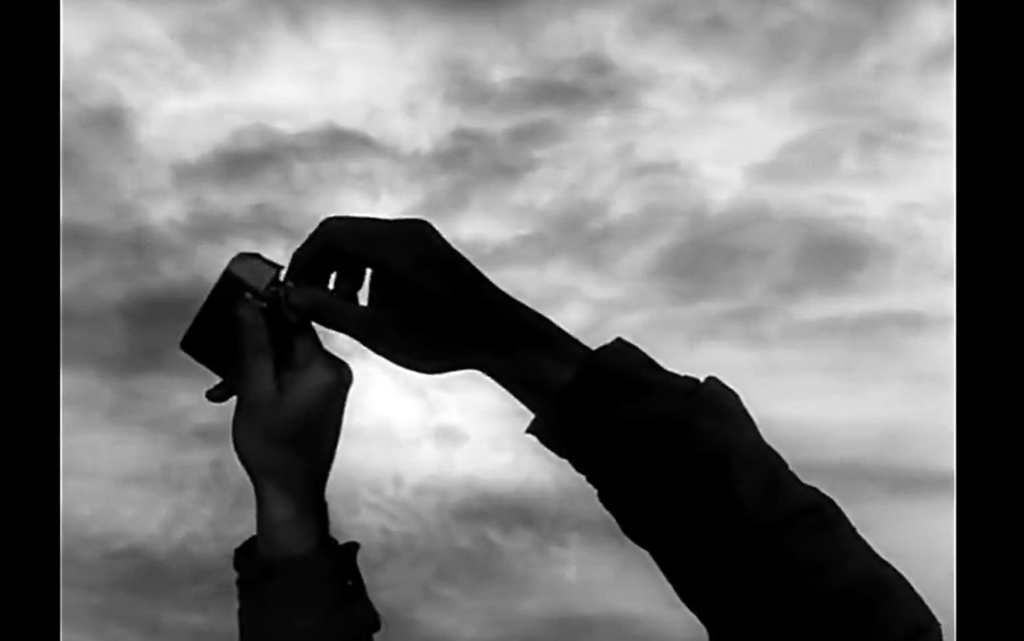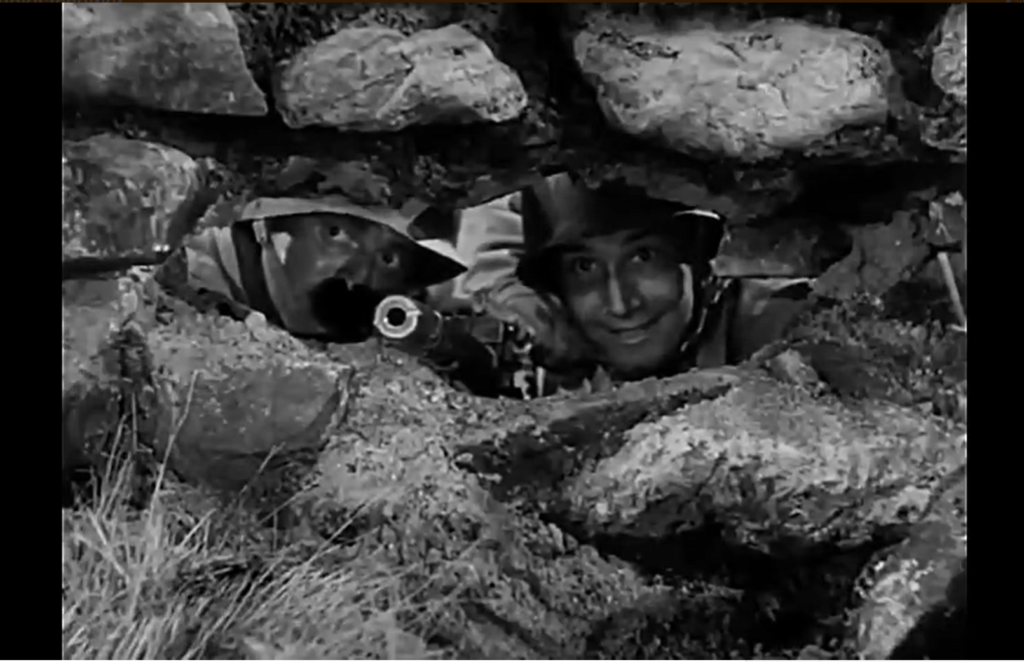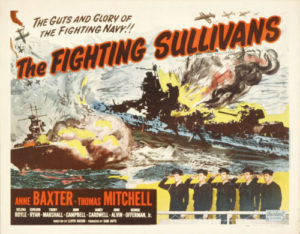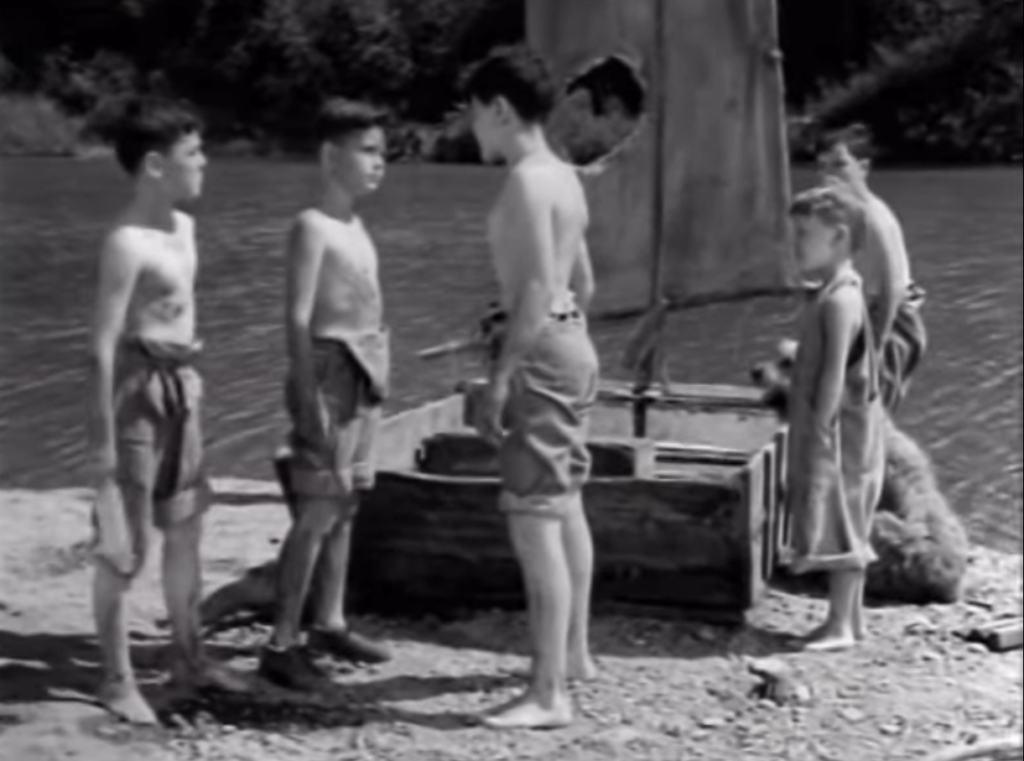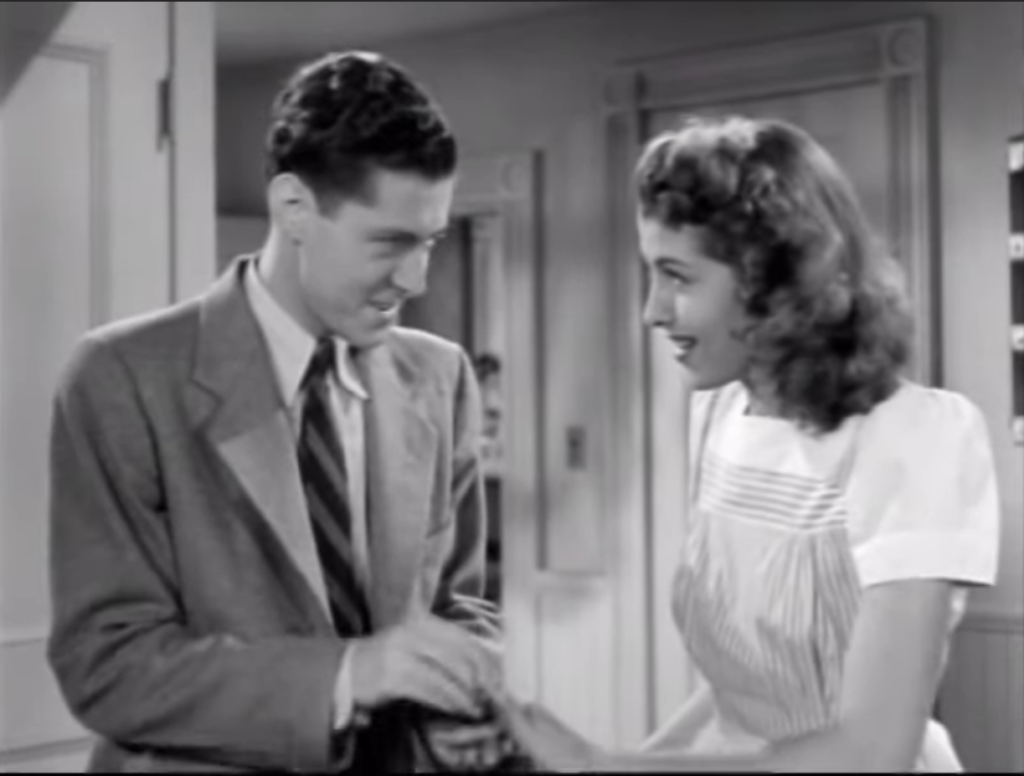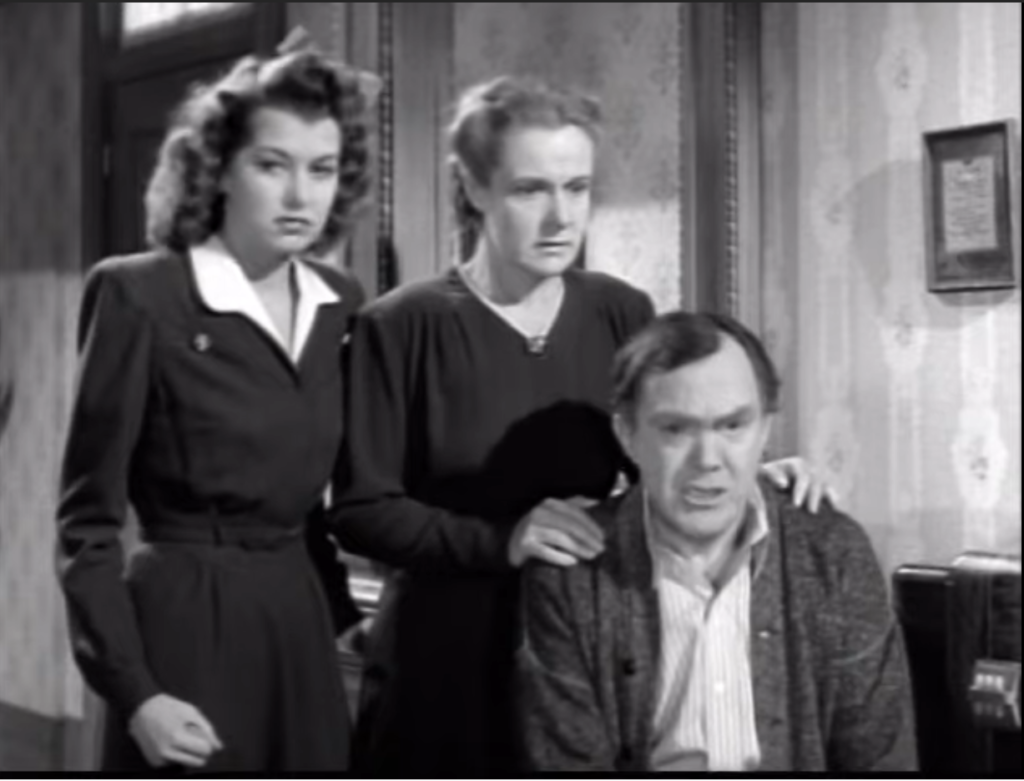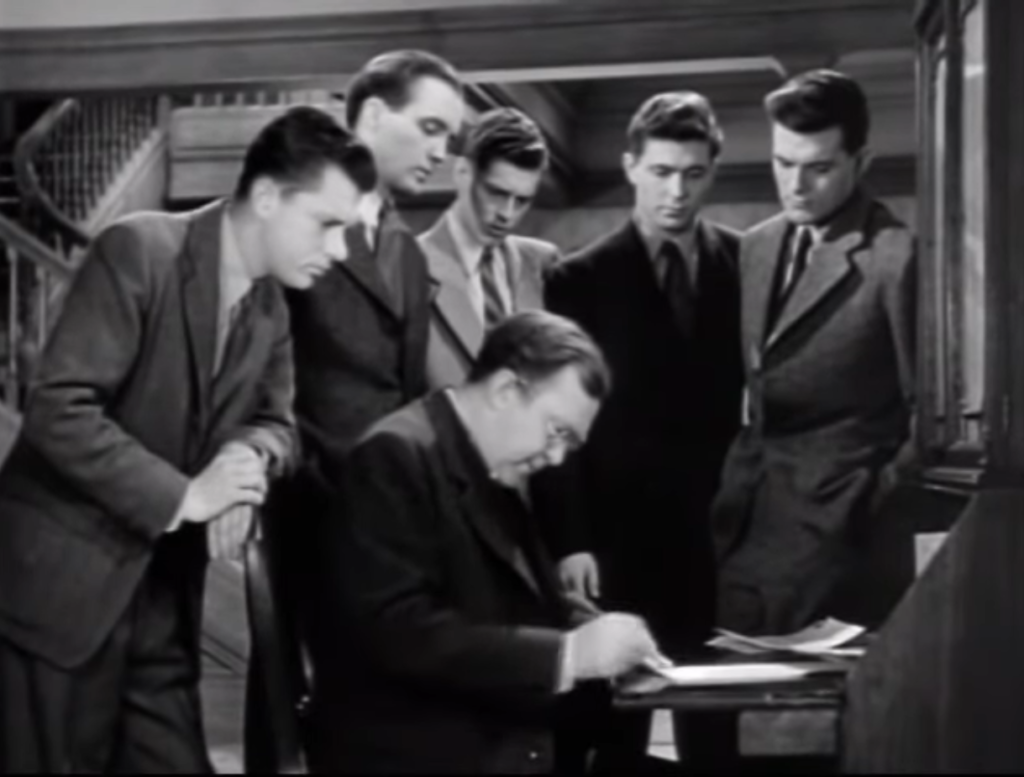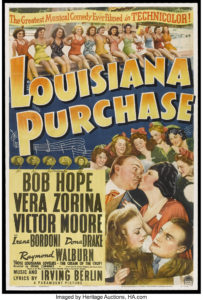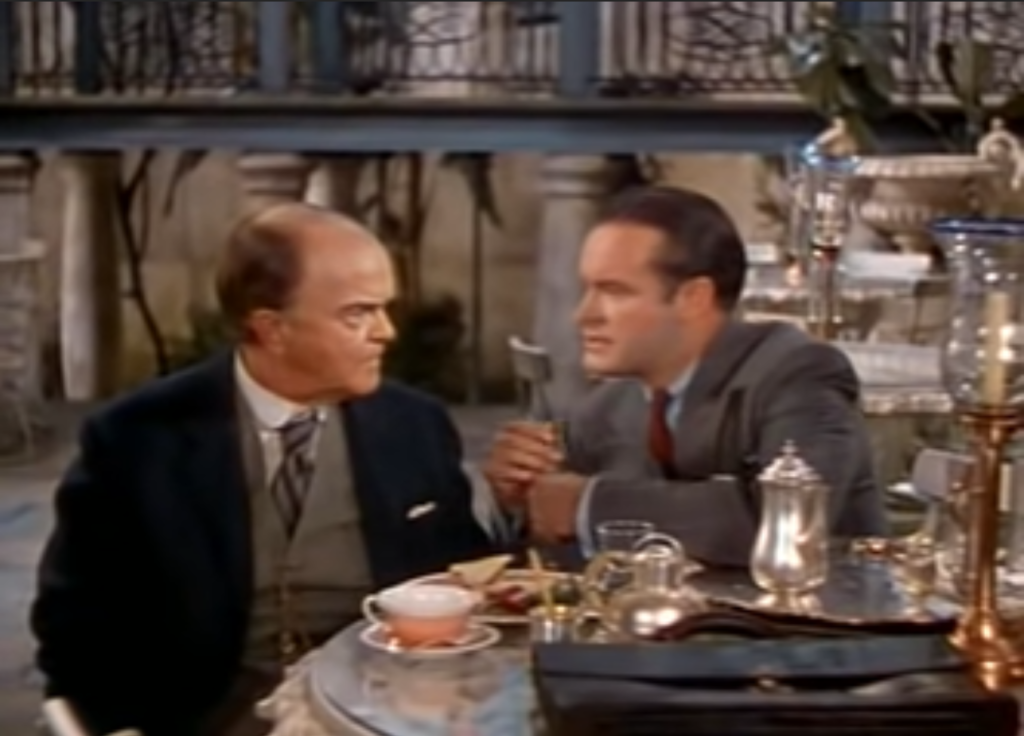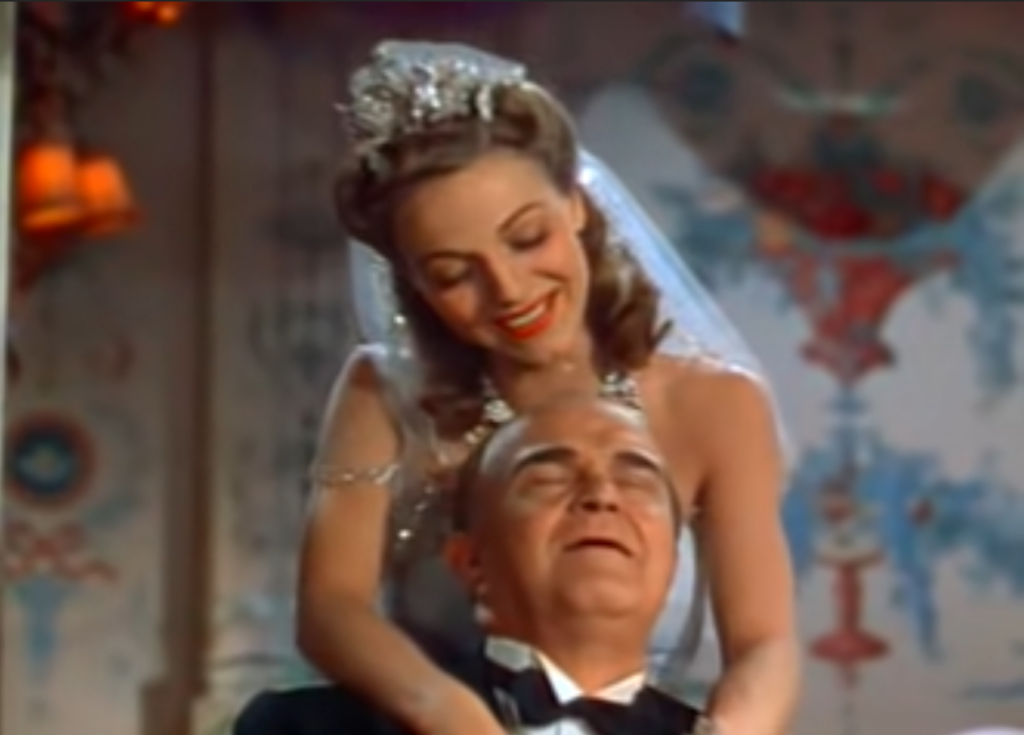|
Genres, Themes, Actors, and Directors:
- Blackmail
- Gangsters
- Robert Montgomery Films
- Veterans
Review:
Robert Montgomery directed this atmospheric adaptation — scripted by Ben Hecht and Charles Lederer — of a novel by Dorothy Hughes, taking place in a shadowy post-war world of double-crossings, resentment, cynicism, and unexpected loyalty. Montgomery nicely plays against type as a decidedly un-charming conman, out to avenge his slain buddy while making some dough and dismissing nearly everyone he meets.

The film is atmospherically shot and well-acted throughout, particularly by Gomez (who received an Oscar nomination) as Montgomery’s unexpected supporter:

… and Hendrix as petite Pila — though her enigmatic character is a challenging one to parse, given that we never really understand the thrust behind her odd fascination with protecting Montgomery (could the cross she wears around her neck be a sign of some kind?).
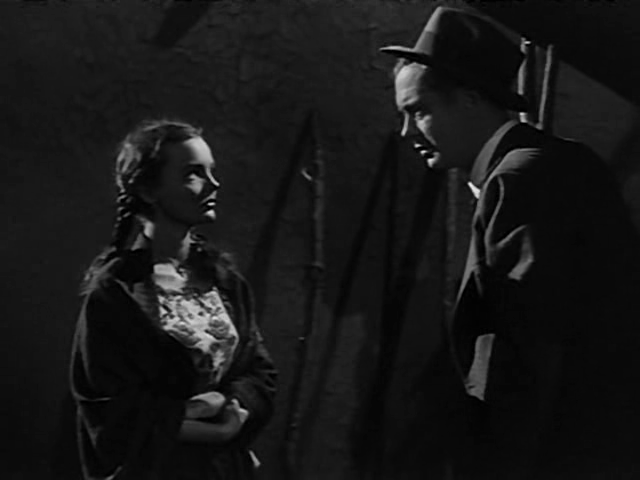
With that said, Hendrix is dedicated enough to her characterization that we eventually believe in Pila, and she’s certainly a pivotal component of this story. The clever script pulls no punches in presenting a corruption-filled universe, complete with a shrill, hearing-impaired villain (Clark):
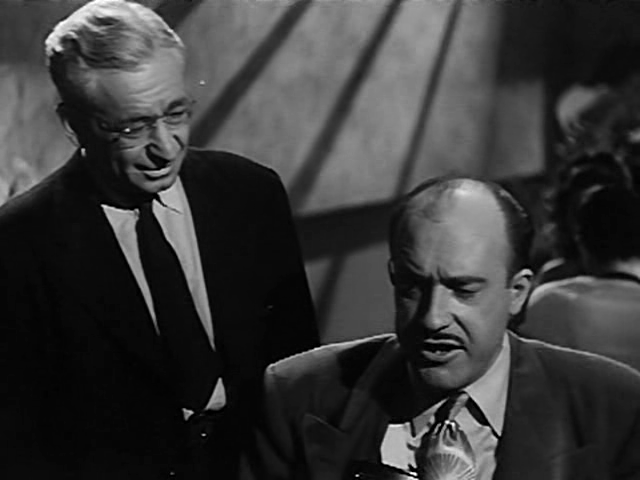
… a government operator (Art Smith) on hand to warm Montgomery that he’s three steps ahead of him; and a gangster’s moll (Andrea King) who is clearly out to game Montgomery in one way or another.
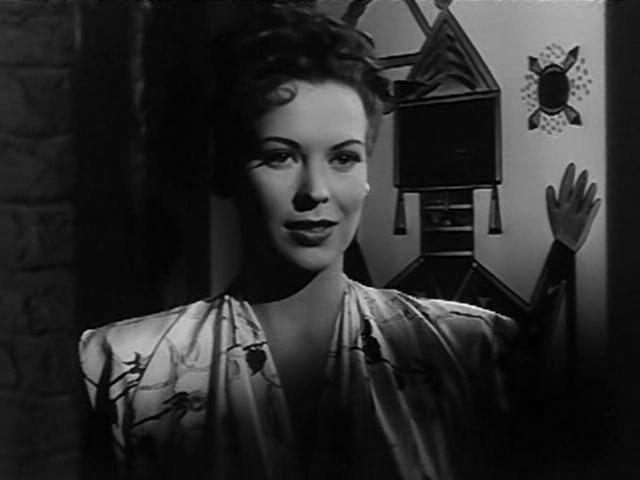
[King is intense in a different way here than her ’50s housewife character in Red Planet Mars (1952).]
The cultural world on display is nicely non-Hollywood, with plenty of authentic-looking extras peopling the screen.
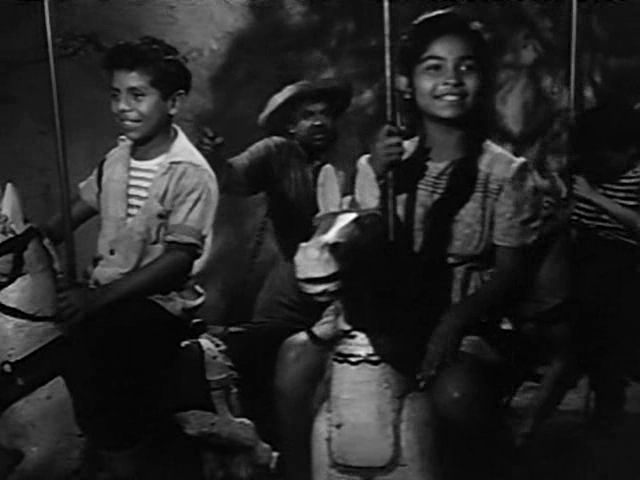
DVD Savant, however, highlights the film’s problematic approach towards Mexican-Americans, noting: “Pancho [Gomez] instantly reveals himself as an underclass ‘Gunga Din‘ sidekick type, willing to put his life on the line for a handsome caballero he knows absolutely zero about”, and adding, “The film isn’t racist because it shows Gagin [Montgomery] and Marjorie [King] ignoring Pila or condescending to her, but because it idealizes her as a non-white ‘princess’, who is magical but cannot end up with the hero.” Savant argues that Mexican-Americans are ultimately presented as “quaint, sentimentalized” and “do[ing] good things for no reward except to share in the suffering, and when all is done they go back to being quaint.” While this all seems accurate, I view the film as very much a vision of how Gagin sees the world around him, and these depictions ring true to his sensibility; he grows in his cultural understanding and empathy by spending time with people (Mexican-Americans) who are authentically trustworthy, and perhaps that’s a realistic enough shift.
Redeeming Qualities and Moments:
- Robert Montgomery as Lucky Gagin
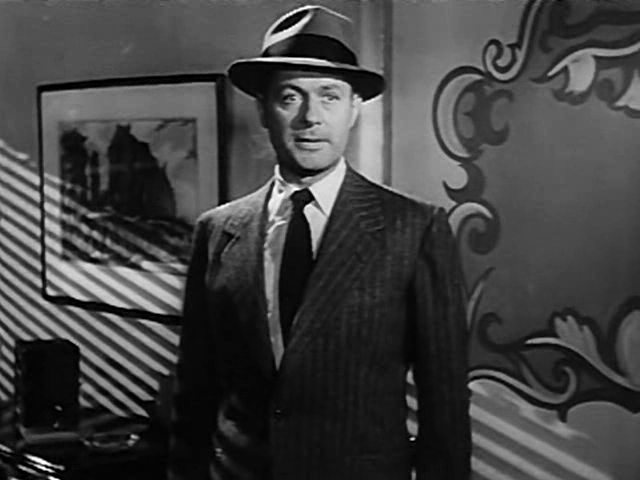
- Thomas Gomez as Pancho
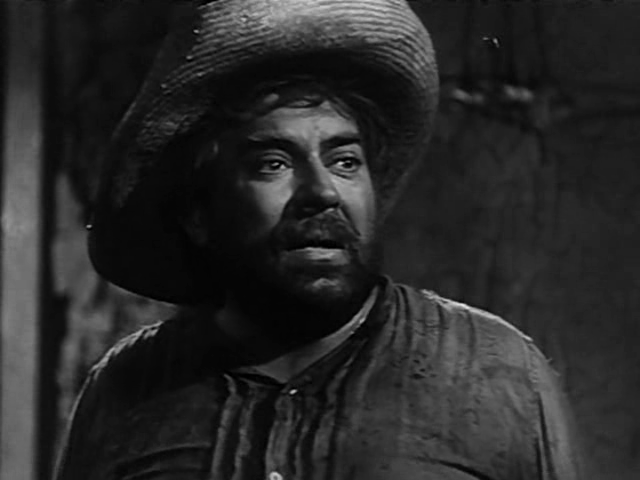
- Wanda Hendrix as Pila

- Fred Clark as Frank Hugo
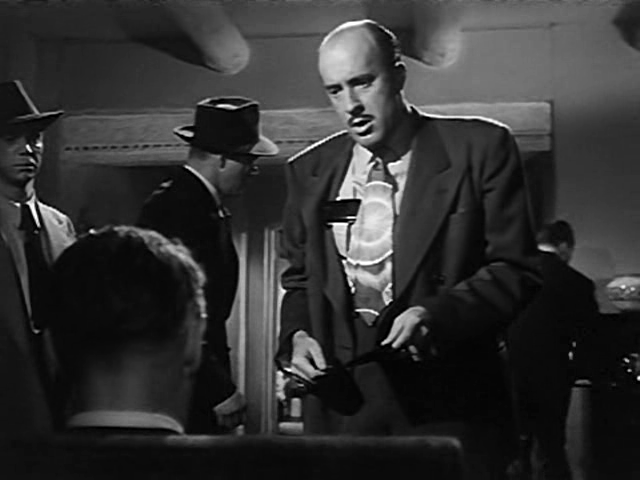
- Atmospheric cinematography
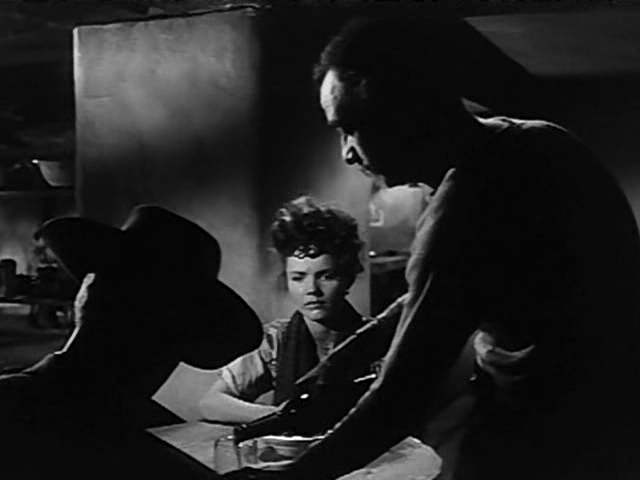
Must See?
Yes, once; while flawed, it remains as an unusual flick and worth checking out. Listed as a Personal Recommendation in the back of Peary’s book.
Categories
Links:
|
